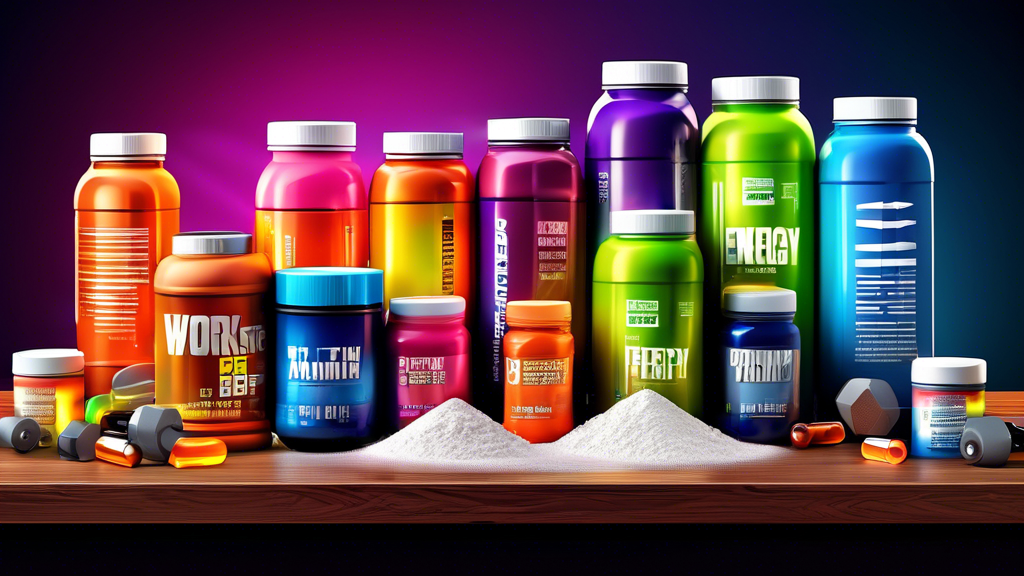Purchase Supplements for Workout Energy
Key Takeaways
If you’re looking to maximize your workout performance, the right supplements can enhance your energy levels, improve endurance, and facilitate quicker recovery. This article explores various types of supplements, their benefits, risks, and a guide for responsible usage.
The Importance of Workout Energy Supplements
Working out effectively requires a considerable amount of energy and endurance. Many individuals, regardless of their fitness level, turn to supplements to provide an extra boost during their training sessions. Supplements designed to enhance workout energy can help you push through plateaus, improve your performance, and accelerate your fitness goals.
Types of Supplements for Workout Energy
Pre-Workout Supplements
Pre-workout supplements are taken before exercising to increase energy, focus, and stamina. They often contain caffeine, creatine, beta-alanine, and branched-chain amino acids (BCAAs). These ingredients work synergistically to enhance physical performance, prolong endurance, and reduce fatigue.
Benefits
- Caffeine: Boosts alertness and energy levels.
- Creatine: Enhances strength and muscle mass.
- Beta-Alanine: Reduces muscle fatigue, improving endurance.
- BCAAs: Supports muscle recovery and growth.
Intra-Workout Supplements
These supplements are consumed during your workout to keep energy levels consistent. Common ingredients include electrolytes, carbohydrates, and additional BCAAs. They help maintain hydration, prevent muscle breakdown, and sustain energy levels.
Benefits
- Electrolytes: Maintain hydration and muscle function.
- Carbohydrates: Provide a quick source of energy.
- BCAAs: Prevent muscle breakdown and support endurance.
Post-Workout Supplements
After working out, post-workout supplements assist in recovery and muscle building. Key ingredients include protein, glutamine, and carbohydrates. These support muscle repair, replenish energy stores, and reduce soreness.
Benefits
- Protein: Supports muscle repair and growth.
- Glutamine: Helps with recovery and reduces muscle soreness.
- Carbohydrates: Replenish glycogen stores and aid recovery.
Choosing the Right Supplements
Selecting the right supplements can be overwhelming due to the myriad of options available. Here are key factors to consider:
Ingredient Quality
Opt for supplements that use high-quality, transparently labeled ingredients. Avoid products with proprietary blends that don’t disclose ingredient quantities. Look for third-party testing and certifications to ensure purity and potency.
Targeted Benefits
Identify your fitness goals and choose supplements that directly support them. Whether you aim to build muscle, increase endurance, or expedite recovery, there’s a supplement tailored for your needs.
Brand Reputation
Research brands and select those with a positive reputation, verified customer reviews, and professional endorsements. Reputable brands are more likely to provide effective and safe products.
Personal Needs and Tolerance
Consider any dietary restrictions, allergies, or sensitivities. Start with lower dosages to assess tolerance and consult a healthcare provider if you have any underlying health conditions.
Potential Risks and Side Effects
While supplements can offer benefits, it’s important to be aware of potential risks and side effects:
Overconsumption
Taking more than the recommended dosage can lead to serious health issues, such as cardiovascular problems, liver damage, and gastrointestinal distress. Always follow the dosage instructions on the product label.
Impurities and Contaminants
In some cases, supplements may be contaminated with harmful substances like heavy metals, banned substances, or microbial pathogens. Choose products from reputable companies that conduct rigorous quality control testing.
Allergic Reactions
Be aware of ingredients that may trigger allergies. Common allergens in supplements include dairy, soy, and gluten. Read ingredient lists carefully, especially if you have known food allergies.
Interactions with Medications
Supplements can interact with prescription medications, reducing their effectiveness or causing adverse reactions. Consult your healthcare provider before adding any new supplement to your regimen.
Responsible Use of Supplements
To maximize the effectiveness and minimize the risks associated with workout supplements, practice responsible use:
Consult a Professional
Before starting any supplement, consult a healthcare provider, particularly if you have existing health conditions or take medications. A dietitian or fitness expert can also provide valuable guidance on the best supplements for your goals.
Follow Dosage Instructions
Adhere to the recommended dosages provided on the supplement packaging. Avoid the temptation to take more in the hopes of achieving faster results.
Monitor Your Body’s Response
Pay attention to how your body reacts to new supplements. Watch for any adverse side effects and discontinue use if necessary. Keep track of your energy levels, performance, and recovery to assess the supplement’s effectiveness.
Maintain a Balanced Diet and Hydration
Supplements should complement, not replace, a balanced diet. Ensure you’re getting enough nutrients from whole foods and staying hydrated for optimal energy and performance.
Cycle Your Supplements
Consider cycling supplements to prevent your body from adapting to them. This involves taking a supplement for a set period, followed by a break, which can help maintain its efficacy and reduce the risk of dependency.
Conclusion
Workout energy supplements can be a valuable addition to your fitness routine, supporting enhanced performance, endurance, and recovery. By choosing high-quality products, understanding your specific needs, and using supplements responsibly, you can harness their benefits while minimizing potential risks. Consult with healthcare professionals for personalized advice and always listen to your body.

